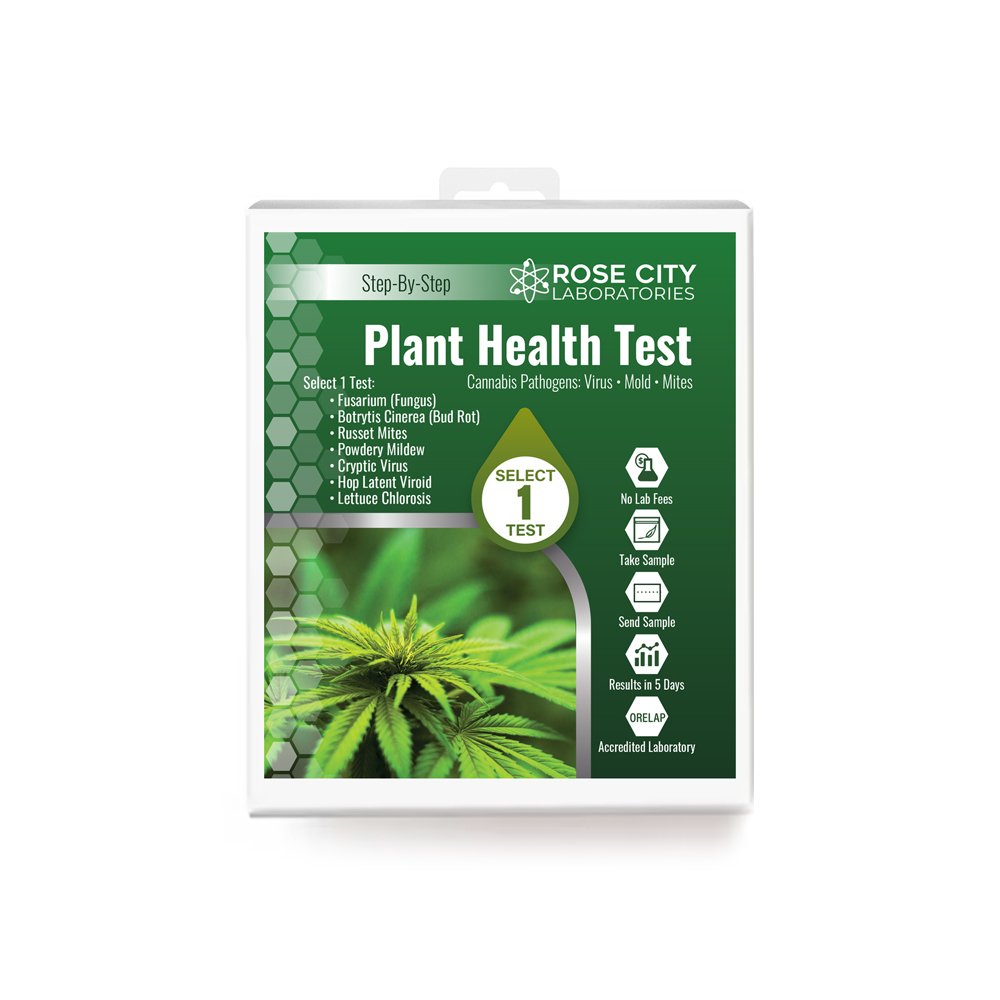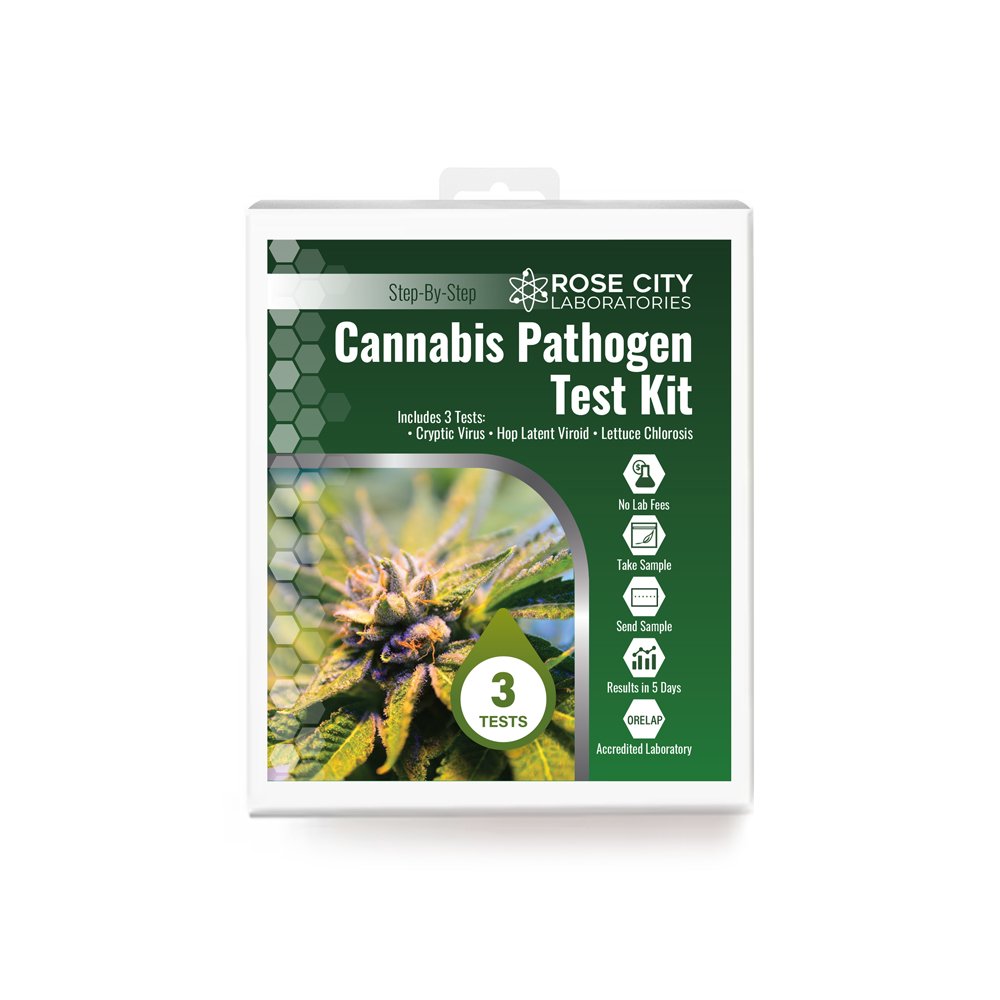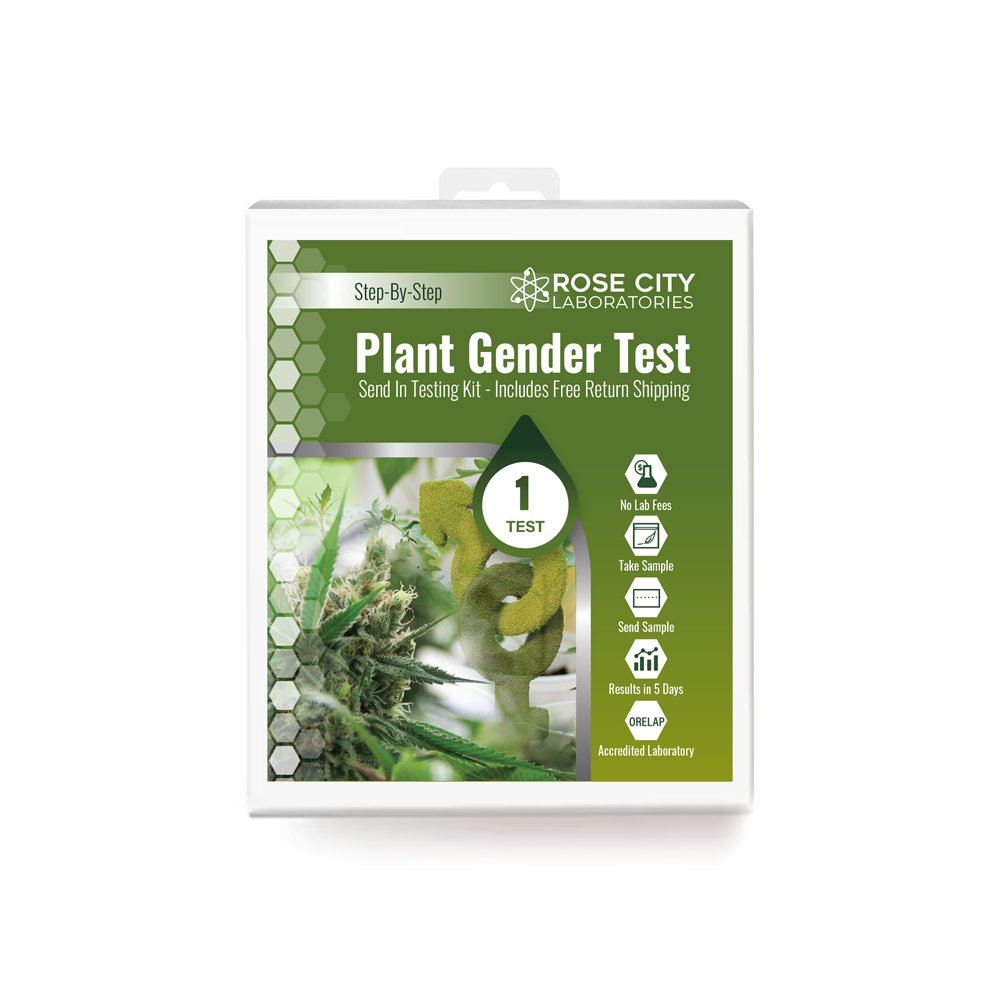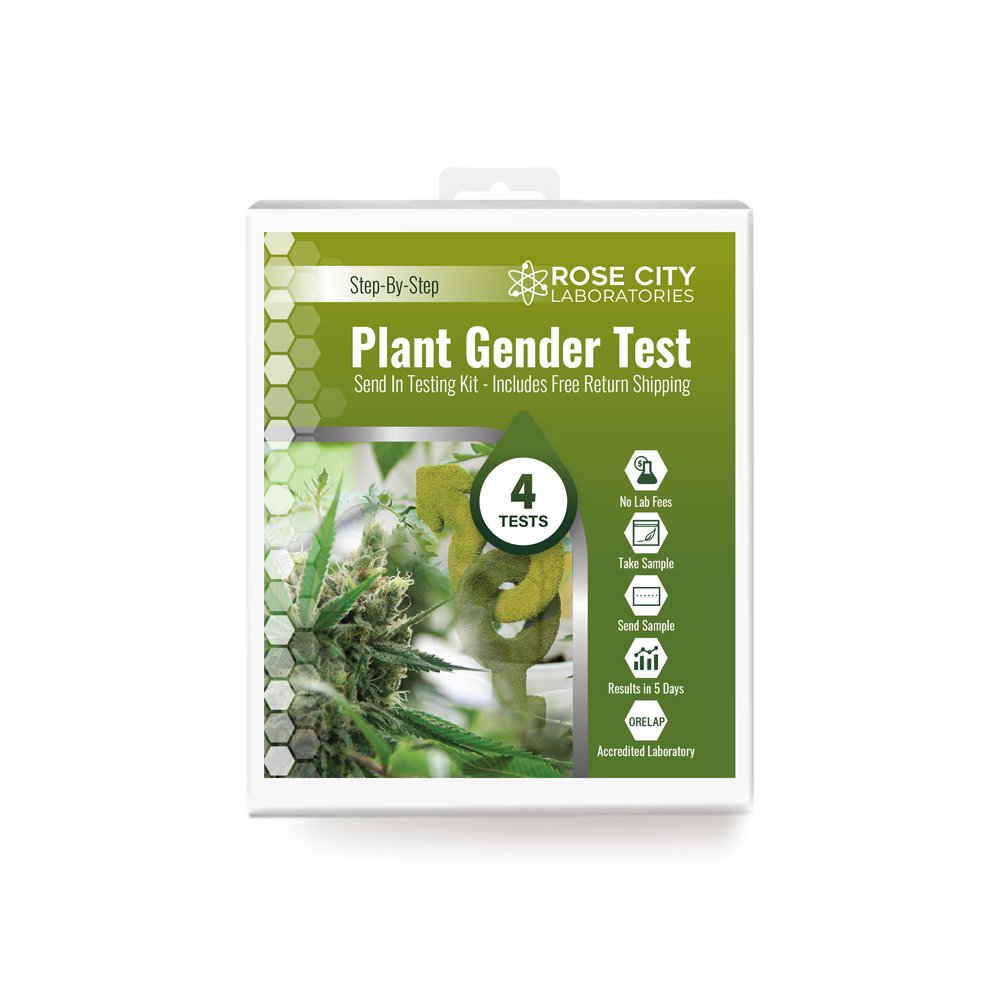
Plant Virus & Pathogen Testing
Rose City Labs covers a wide variety of testing for cannabis plants which includes Cannabis Cryptic Virus, Hop Latent Viroid, Lettuce Chlorosis Virus, and Pathogens! We also have test kits for a quick and easy way to sample your plants and get results from our laboratory.
Heavy metals and micro-bio
• Heavy metals, if harvested or manufactured on or after March 1, 2023
• Microbiological containments, if harvested or manufactured on or after March 1, 2023
- Heavy Metals are metallic elements with high atomic weights that can be toxic and harmful to living organisms when present in high concentrations.
- Microbiological contaminants refer to microorganisms that can cause illness or infection in humans when present in high levels in food or other products. Microbial contamination in cannabis can occur during cultivation, harvesting, processing, and storage.
Plant Viruses and Viroids
Cannabis Cryptic Virus
CCV can be vertically transmitted through seeds, which means breeders may want to screen plants before crossing. Researchers detected CCV in leaves showing signs of hemp streak virus; however, the presence of CCV alone did not cause streak symptoms. It’s possible that CCV interacts with other fungal pathogens to produce disease symptoms in cannabis and hemp plants, which is why monitoring the presence of CCV could be valuable.
Hop Latent Viroid
Hop latent viroid (HLVd) was first identified in the hop plant, but it can also infect cannabis, which is a relative of hops. It completely depends on the metabolism of the host plant. Once infected, plants can only be saved via a lengthy tissue culture process that will produce a new viroid-free plant.
Lettuce Chlorosis Virus
The visual signs of LCV infection include yellow, rolling, brittle leaves. Cannabis and hemp plants that are infected early will suffer stunted growth, but may not show visual signs until a few weeks into flowering. While the infection does not kill cannabis and hemp plants, it significantly affects yield and potency. The plant will produce smaller flowers with fewer trichomes, cannabinoids, and terpenes.
Mold, Mildew and Fungus
Aspergillus
Aspergillus is known to produce fungal infections, or Aspergillosis, in people with compromised immune systems. Several strains of Aspergillus produce mycotoxins. Starting in Jan 2023 the OLCC will require testing for 4 Aspergillus strains; A. flavus, A. fumigatus, A. niger, A. terreus.
Botrytis cinerea
Often called “Bud Rot” or “grey mold”, Botrytis cinerea is a systemic mold infection in Cannabis. The infection starts within the bud, making it difficult to detect in the early stages of infection. It can remain dormant for long periods of time before it sporulates. Peer-reviewed papers have also shown that Botrytis is a systemic infection that can be passed to future generations via seeds.
Fusarium
Fusarium is a soil-dwelling fungus that causes yellowing and wilting of cannabis leaves and stems. The fungus can sit dormant in soil for years before becoming active and infecting a viable host plant. There is no effective treatment against fusarium. Infected Cannabis plants, as well as any seeds they produce, are a lost cause.
Powdery Mildew
Powdery Mildew can vascularize into the plant tissue and remain invisible to a grower. It is arguably the most destructive Cannabis pest. It is an obligate biotroph, it can only extract nutrients from living plant tissues and cannot grow apart from their hosts. It tends to emerge and sporulate 2 weeks into flowering thus destroying very mature crops with severe economic consequences.
The Rose City Compliance Certification Program is a partnership between our Cannabis customers and us, their preferred testing lab. Certification allows approved businesses to use our branded Certified Testing Seal on their packaging. The visibility of this seal means that products have been independently tested by a third-party accredited laboratory. By utilizing our Certified Seal on their products' packaging, consumers make the connection between quality assurance and a reliable and compliant product. At a glance, this means the product meets the packaging standards required by the OLCC’s mandated rules.
BENEFITS:
• Reliable TNI - The NELAC Institute Testing Standards
• Brand Recognition and Cross Marketing Relationship
• Builds Consumer Confidence & Product Awareness
• Complies with OLCC Packaging Rules
• Additional Product Exposure on our Marketing Platforms
TNI covers testing and calibration quality systems using standard methods and laboratory-developed or modified methods.
TRANSPARENCY:
This program is for co-marketing purposes, there are no fees or monetary obligation and we will provide all graphic assets to work with your custom packaging. We feel strongly that solid customer networking keeps us connected as we navigate this competitive field. We believe in doing our part to help promote our relationship as we move into 2023.
Please contact Zach / zachary@rosecitylabs.com if you are interested in making this official.








